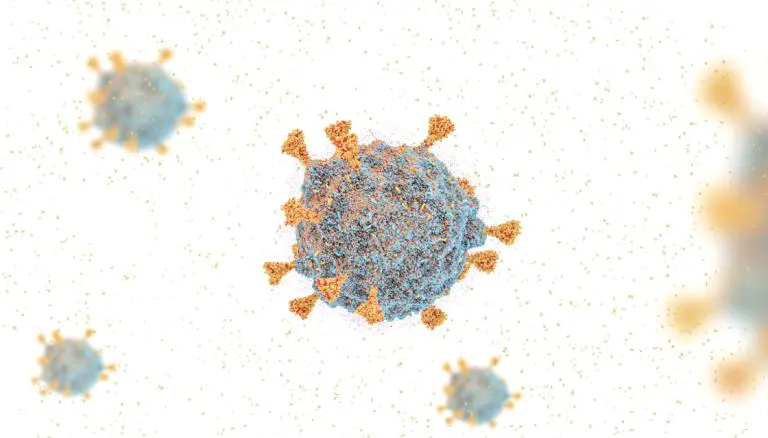Omicron: What is it, and what to do about it?

Omicron Variant was first detected in South Africa from a specimen collected on 9 November 2021. However, it was referred to the World Health Organization (WHO) on November 24th. Before it was named Omicron Variant, the unusual COVID-19 strain was referred to as SARS-CoV-2 variant: B.1.1.529.
According to the WHO, Omicron Variant is very serious as it has a large number of mutations that might be uncontrollable. The organization has defined it as the ‘variant of concerns.’
Omicron Variant symptoms:
Symptoms of COVID-19’s new strains’ Omicron Variant, which was detected first in South Africa, are a bit different from the other coronavirus variants including Delta; Head of the South African Medical Association, Dr. Angelique Coetzee, said to The Telegraph.: patients are presenting with ‘unusual’ symptoms when affected with the Omicron Variant. However, the new COVID-19 variant is believed not to affect the patients’ ability to taste or smell.
“It presents mild disease with symptoms being sore muscles and tiredness for a day or two not feeling well,” Coetzee added. She also said Omicron Variant may affect more those who are unvaccinated and elderly people.
The Technical Advisory Group on SARS-CoV-2 Virus Evolution met today to review what is known about the #COVID19 variant B.1.1.529.
They advised WHO that it should be designated a Variant of Concern.
WHO has named it Omicron, in line with naming protocols https://t.co/bSbVas9yds pic.twitter.com/Gev1zIt1Ek— World Health Organization (WHO) (@WHO) November 26, 2021
Omicron Variant Spots
Omicron Variant in South Africa:
Since the announcement of the new COVID-19 strains’ Omicron variant, South Africa has seen a sharp increase in COVID-19 cases while according to data only around 24% of South Africans are fully jabbed.
Omicron Variant in EU:
Dozens of Omicron Variant cases have been detected across the European Union countries including Italy, Denmark, UK, Germany, Czech Republic and Belgium.
Two cases of the Omicron variant reported in Britain, UK’s Secretary of State for Health Sajid Javid revealed on Saturday. Another two active Omicron variant cases were also found in Denmark and Italy with possible increase in the rate expected in the coming weeks.
Two NEW suspected cases of #OmicronVariant found in travelers to Denmark
from
. This adds to Germany
’s suspected case, earlier Belgium
confirmed #B11529 case, 2
cases, Czech
, & likely dozens in NL
.
Have no illusions—Omicron is global
.https://t.co/gf2ARLXJkt pic.twitter.com/8rZAHJHlmZ
— Eric Feigl-Ding (@DrEricDing) November 28, 2021
Omicron Variant in the US:
The Chief Medical Advisor to the President of the US, Dr. Anthony Fauci, revealed that no current Omicron cases were reported in the country. However, it is possible that the new variant is already here, according to the CNN report.
The world’s reaction to the Omicron Variant:
Several countries have announced a travel ban from South Africa and other African countries regarding the Omicron variant. Israel closed its borders to any foreign travelers for the next two weeks amid the spread of the new variant and after detecting cases of it inside the country. Saudi Arabia has also announced banning flight from and to seven African nations with fears of the Omicron Variant.
Vaccines’ effectiveness against Omicron Variant:
It is not clear yet whether the current vaccines work against the Omicron Variant. According to the WHO, scientists are still studying the symptoms and the mutations as it might take weeks to understand the impact of the new variant.
Moreover, a top British health official revealed that current vaccines would “almost certainly” be less effective against the new variant, but it’s important to get vaccinated.
Omicron Variant and Pfizer vaccine:
Pfizer has announced that it is able to produce an effective vaccine against the new Omicron Variant within 100 days if the new strains appearing to be resistant of its current jabs.
Great news! Pfizer say that within 100 days it can rework their current vaccine to combat the new variant. So once you’ve had your double jab, plus your booster, you can then schedule your omicron fourth-but-definitely-not-final jab.
— Candace Owens (@RealCandaceO) November 27, 2021
How to submit an Op-Ed: Libyan Express accepts opinion articles on a wide range of topics. Submissions may be sent to oped@libyanexpress.com. Please include ‘Op-Ed’ in the subject line.
- Ola Energy accelerates growth with sharp rise in annual profit - July 14, 2025
- Doha ceasefire talks face setback over Israeli withdrawal terms - July 14, 2025
- Libya, Egypt reaffirm cooperation during AU summit - July 14, 2025



